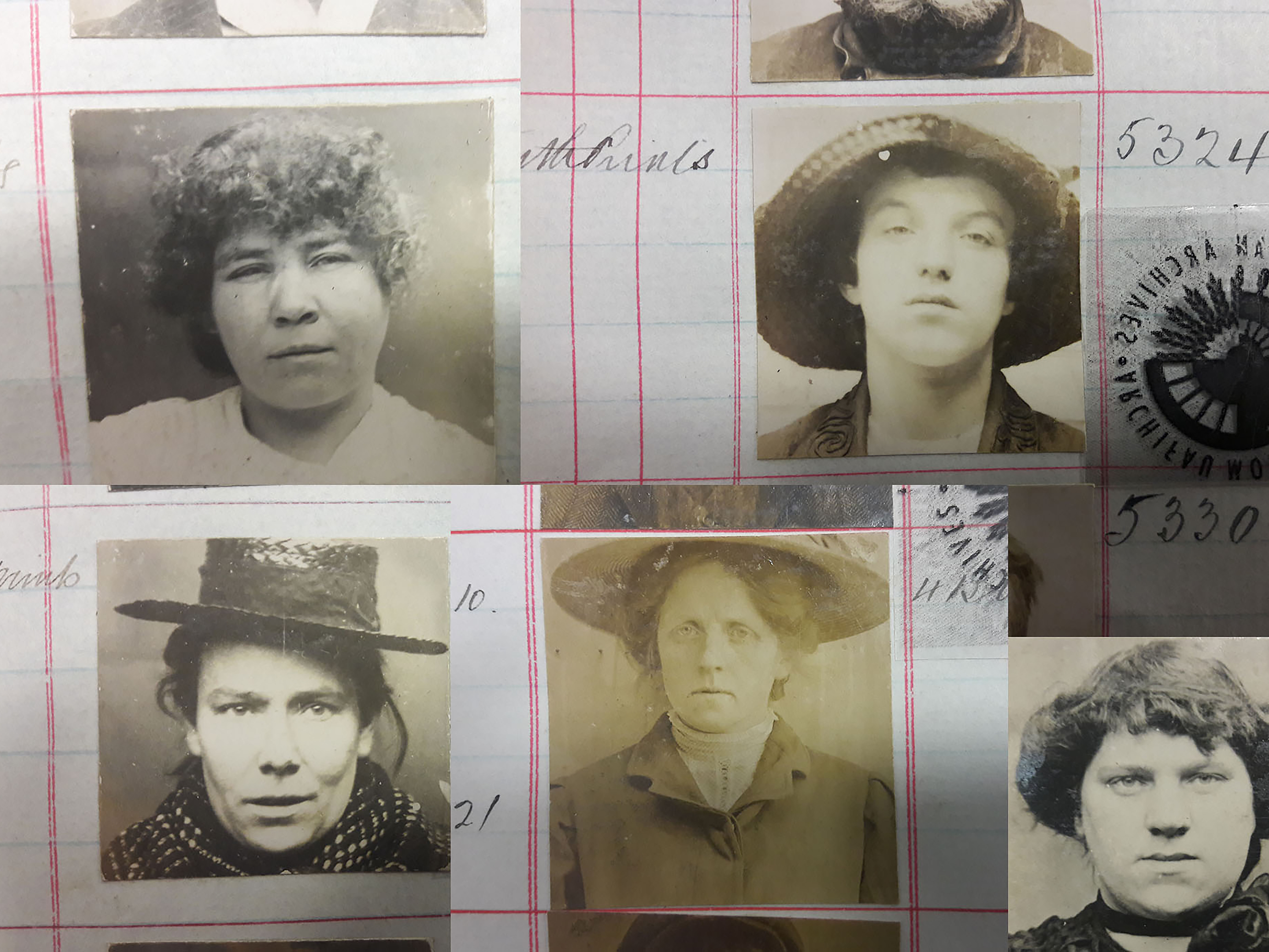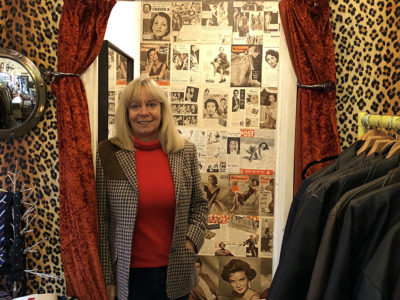Cardiff’s particularity
Cardiff is unique in the way racial discrimination entered the sphere of prostitution. After the First World War, many soldiers from British colonies emigrated to port towns such as Cardiff.
They were typically from West Africa, the West Indies and the Middle East. After the war, Wales was stricken with poverty and unemployment.
These new residents became the victims of racial scapegoating and discrimination.
They settled in the Butetown/Bay area. “Apart from all the discrimination, there was this fear in Welsh society of interracial relationships. People were afraid these men were taking Welsh women away from them,” says historian Simon Jenkins.
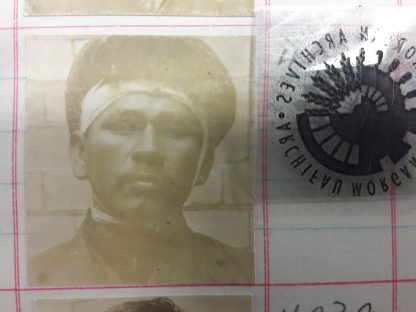
Jose Gomez was arrested in 1912 for ‘living on prostitution’, i.e. being a pimp. He was expelled to Vera Cruz the same year. Photograph found in Glamorgan Archives
In 1925, the British government issued a Special Restriction Order, also known as the Colored Alien Seamen Order.
This was done to control the numbers of non-white seamen entering major ports and was put into effect in Cardiff very early on.
The order could not restrict Maltese men from entering the town because they were considered British.
These men became pimps in the bay area of Cardiff and controlled many white Welsh women, known as ‘Cafe Girls’.
This fueled a heavy racial hatred and they were seen as exploiters of women in organised prostitution.
However, nothing was done to help these women or improve their situation. “The women were secondary focus at this point. The main focus was on immigrant men and masculinity,” Simon explains.
Director of UN Women Phumzile Mlambo-Ngcuka talks about the #hearmenow movement
Throughout history and to this day, poverty is often the underlying cause of prostitution. Looking back, we see very little has changed
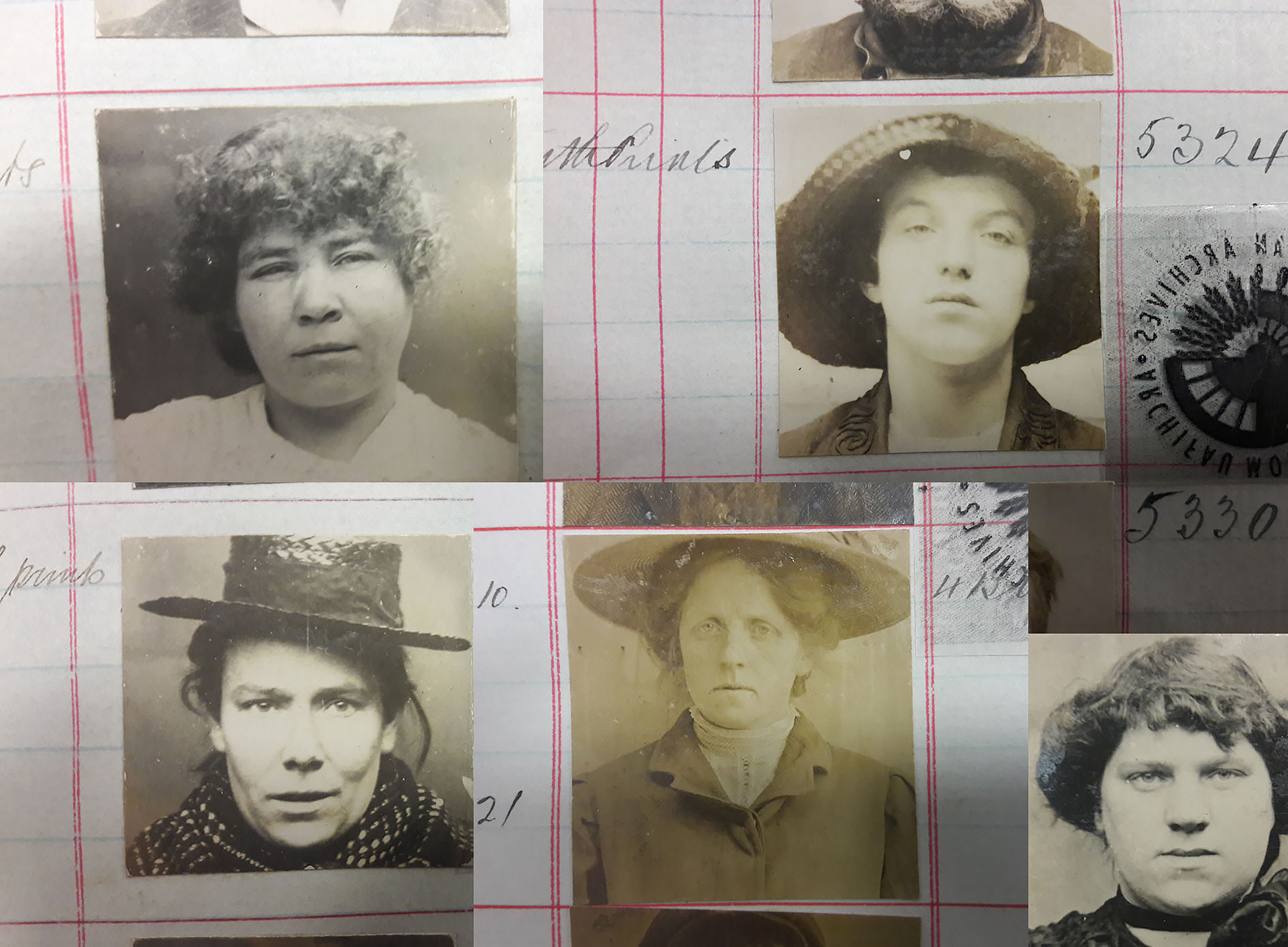
Convicted women appearing in Cardiff’s constabulary registry from 1912 to 1913. There is no explanation given to their arrest, only the words “disorderly prostitute”. Found at Glamorgan Archives.
For many women in Wales, prostitution is less of a choice than a response to difficult living conditions. Studies show that as sex workers, women are often confronted by dangerous situations, suffer daily abuse and are exploited.
On November 25, the UN started a 16-day campaign to end violence against women and to get their voices heard with the #hearmetoo movement. UN Women explains, “For far too long, impunity, silence and stigma have allowed violence against women to escalate.” And who has suffered more from stigma than the women working in prostitution?
Let’s go all the way back to 1861. We’re in Swansea Town Hall and Joseph Harding, advocate for women’s protection, is making a speech in front of a predominantly male audience. He’s talking about prostitution.
He calls it “A great social evil” and says women become prostitutes for two main reasons: naivety or moral corruption.
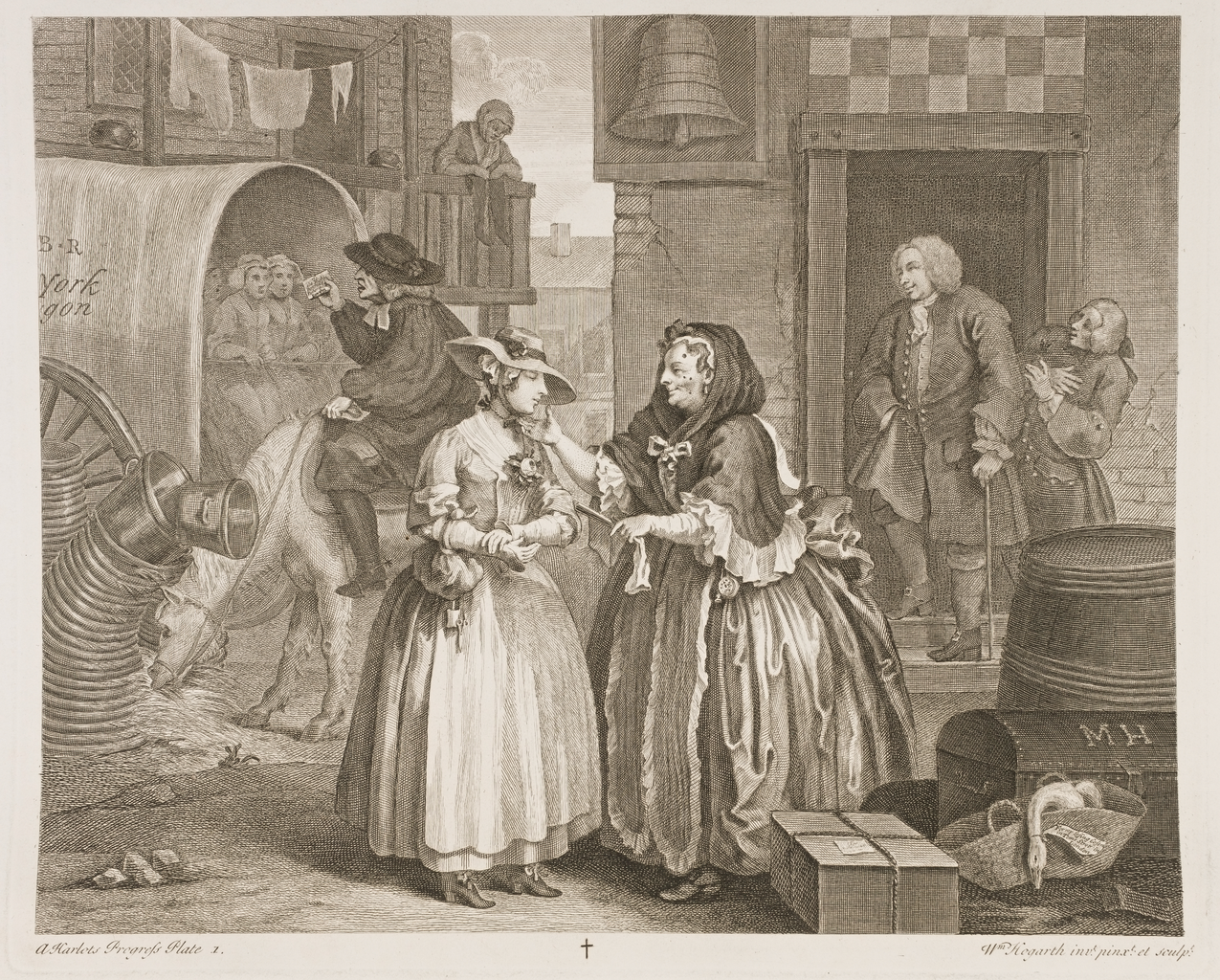
William Hogarth’s ‘A Harlot’s Progress’, a depiction of a young woman fresh from the country being tricked into prostitution on her arrival in London. In the past, prostitutes were often seen as naïve victims
Despite what he and others might have thought, prostitution in late nineteenth-century Wales stemmed in fact from a more practical and urgent need. Many women regarded it as a means to an end, an addition to their small earnings from day jobs.
Judith Walkowitz, a historian on Great Britain, explains: “Milliners, dressmakers, tailoresses, domestic servants, laundresses: young women would rarely earn more than six to eight shillings a week, barely half what a male day labourer would earn.”
Simon Jenkins, a historian who has focused his work on prostitution in Cardiff says: “Very few people in this time understood the underlying reasons behind prostitution. They thought it was all due bad morals and drink.”
History’s forgotten women: The life of Dorcas Carr
Today’s reality
We would like to think we have moved on from such biased narratives and yet prostitution still remains largely misunderstood.
The reality is that a lot of those working in the sex industry are vulnerable and do not enjoy the work.
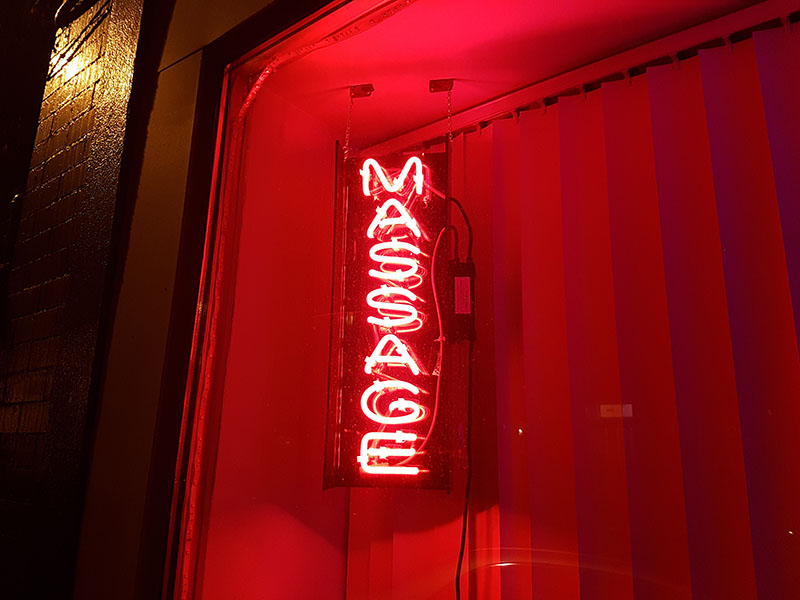
Massage parlours often act as a substitute to brothels. Although safer than the streets, these parlours have been known to exploit women. Photo credit: Larry Walker
A study conducted by professor Tracey Sagar from Swansea University reveal that out of 40 sex workers in Wales, more than half entered into this line of work to support their drug addictions.
Around half of them said they did not have secure accommodation and five were homeless.
“[I’m a] shell of the person I used to be.”
The research also revealed mental health was an issue as more than 87% of those interviewed said they suffered from anxiety and depression.
“It makes me scared, my everyday life is affected, even the simplest of things such as going to the shops,” one interviewee shared in the report. “[I’m a] shell of the person I used to be.”
What does the law say?
Since the 1800s, the law has gone back and forth on the legality of prostitution.
In Wales, at the turn of the century, there was a strong repression of prostitution due to a religious revival. A Methodist campaign, for example, tried to drastically reduce street prostitution in the slum areas of Cardiff.
Simon says the rate of arrests increased by around 65% around those times. But these did not prevent prostitution in any way and had the negative effect of making trade more dangerous for women.
“Police were often arresting the same women time and time again, which, in turn, made the practice more clandestine and dangerous,” Simon explains.
Today, prostitution is legal but the act of solicitation is not. This means activities such as ‘kerb-crawling’ and brothel keeping can be punishable by law. But a lot of women don’t have much choice than to search clients on the streets. Often putting themselves at high risk, they stay out until late in dangerous areas.
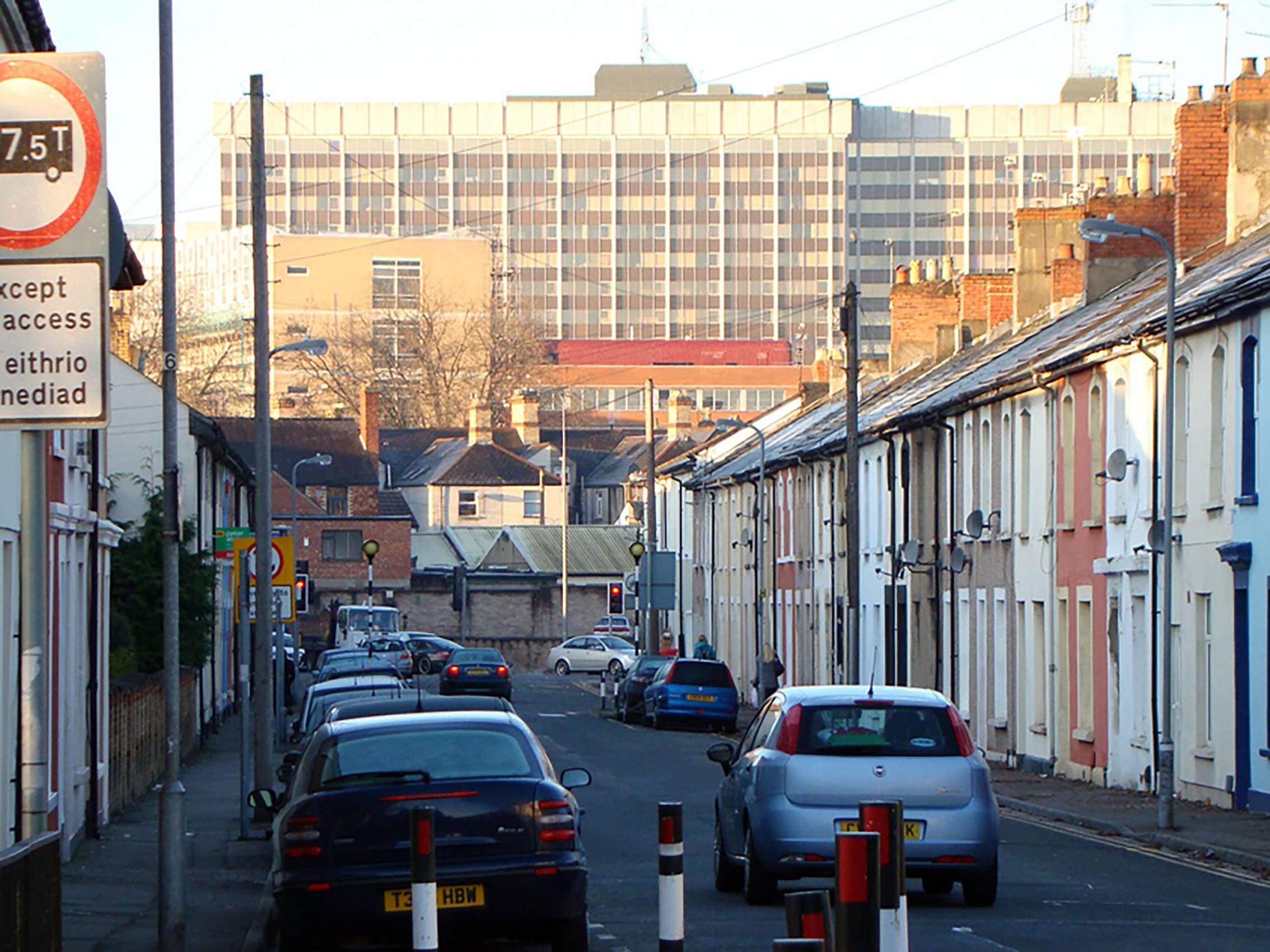
The areas most affected by prostitution in Cardiff are around Splott and Grangetown. Local communities have made efforts to reduce the number of street sex workers. Photo credit: John Candy
In January 2017, South Wales Police decided to provide support and protection to sex workers in areas such as Grangetown, Cardiff and Splott. The scheme was called ‘Operation Gray Neptune’.
The scheme was deemed a success by police Constable Alex Bourner, who told WalesOnline: “This operation was a success – it is vital that sex workers are given the support they need to break their cycle of offending.”
By looking back, we discover how much poverty can be a cause of prostitution. Throughout history and to this day, many women have been putting themselves at risk, both mentally and physically, just to get by in life.
During the UN’s 16-day campaign to end violence against women, we should remember to consider the violence they face because of poverty.
To find help, visit SaferWales or call 029 2022 0033
Material and photos found at Glamorgan Archives, visit their website here
Cardiff’s particularity
Cardiff is unique in the way racial discrimination entered the sphere of prostitution. After the First World War, many soldiers from British colonies emigrated to port towns such as Cardiff.
They were typically from West Africa, the West Indies and the Middle East. After the war, Wales was stricken with poverty and unemployment.
These new residents became the victims of racial scapegoating and discrimination.
They settled in the Butetown/Bay area. “Apart from all the discrimination, there was this fear in Welsh society of interracial relationships. People were afraid these men were taking Welsh women away from them,” says historian Simon Jenkins.

Jose Gomez was arrested in 1912 for ‘living on prostitution’, i.e. being a pimp. He was expelled to Vera Cruz the same year. Photograph found in Glamorgan Archives
In 1925, the British government issued a Special Restriction Order, also known as the Colored Alien Seamen Order.
This was done to control the numbers of non-white seamen entering major ports and was put into effect in Cardiff very early on.
The order could not restrict Maltese men from entering the town because they were considered British.
These men became pimps in the bay area of Cardiff and controlled many white Welsh women, known as ‘Cafe Girls’.
This fueled a heavy racial hatred and they were seen as exploiters of women in organised prostitution.
However, nothing was done to help these women or improve their situation. “The women were secondary focus at this point. The main focus was on immigrant men and masculinity,” Simon explains.

